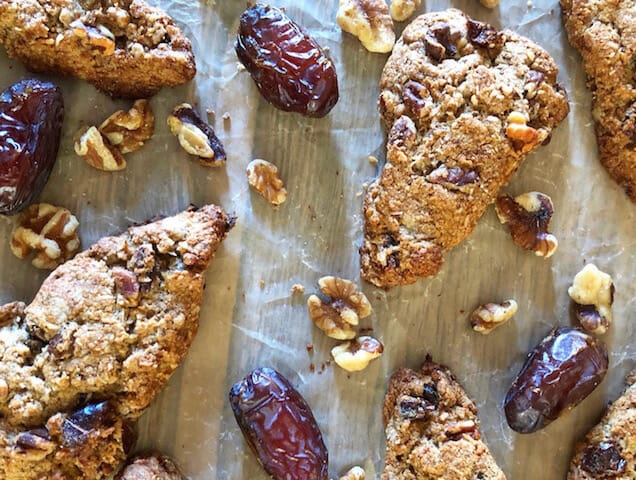We’re in month three of my Year of Whole Grains, and this time around we are talking about teff. It’s as tiny as a poppy seed, so tiny, in fact, that the nutrient-rich bran and germ aren’t ever removed in processing, so it’s always a whole grain.
Go teff!
Teff is a dietary staple in Ethiopia, where the flour is used for injera, the flatbread that’s eaten daily in practically every household. Ever wonder why those Ethiopian marathoners do so well? Forget powerful muscles and good genetics. It’s the teff, people.
A Gluten-Free Flour
Here in the US, teff has grown in popularity, in part because it holds promise for being a suitable substitute for wheat, appealing to those looking to avoid gluten. Some folks are predicting teff will be the next “big thing.” Watch your back, quinoa!
Teff is particularly appealing because of its nutrient density. A tiny powerhouse, teff tops ALL grains for calcium content. One cup of cooked teff has 123 milligrams of calcium, roughly the amount you’d find in a half cup of cooked spinach or a scant 1/2 cup of whole milk yogurt. It’s also rich in fiber, vitamin C, and protein.
Teff in Baking
For baking, teff flour can be a magical addition. It worked wonders in these healthy whole grain scones, a recipe that’s been in the works for nearly a year. The scones were never quite right until I swapped out some of the whole wheat flour for teff. The soft, dark grains add a beautiful brown to the color and a mild nuttiness to the flavor. The result is a tender, tasty, sweet, and textured scone that to my tastebuds, beats out more traditional white flour ones. I also tinkered with teff in a blondie batter, substituting one-third of the all-purpose flour for teff flour to deliciously winning results.
Can’t Find Teff? Use Buckwheat Flour
My overall takeaway on teff? It’s well worth adding teff flour to your whole grain pantry for enriching and beautifying baked goods, most especially these scones. I figure if I eat enough teff, I’ll be right in there with the Ethiopians at the next marathon.
Whole Grain Scones with Coconut Walnuts and Dates
Ingredients
- 1/2 cup teff flour or buckwheat flour
- 1 cup whole wheat flour
- 1/2 cup unsweetened shredded coconut
- 1/2 cup firmly packed brown sugar
- 1 teaspoon baking powder
- 1 teaspoon baking soda
- 1/2 teaspoon salt
- 3/4 teaspoon ground cardamom
- 1/2 cup cold butter, cut into small cubes (8 Tbsp/4 oz)
- 1/2 cup buttermilk
- 1/2 cup chopped pitted dates (about 7 Medjool dates)
- 1/2 cup chopped walnuts or pecans
Instructions
-
Preheat oven to 375 degrees. Cover two baking sheets with a Silpat or parchment paper.
-
Into a large bowl, measure the teff (or buckwheat) flour, whole wheat flour, coconut, brown sugar, baking powder, baking soda, salt, and cardamom. Blend the ingredients well with a fork.
-
Add the cubes of butter to the bowl and toss to coat with the flour mixture. Use your fingers or a pastry cutter to break the butter into the flour until it is in tiny, pea-size pieces evenly distributed into the flour mixture (sort of like coarse, wet sand).
-
Drizzle the buttermilk over the dough and gently stir with a fork just until the ingredients are mixed. Don't over mix or the scones will be tough. Add the dates and walnuts and stir just until combined.
-
Spread a little flour over a cutting board and invert the scone dough on top. Gently pat the dough together into a round so it is about 8 inches in diameter. Use a large knife to cut it into 10 triangles. Transfer to the 2 baking sheets using a spatula.
-
Bake until the scones are deeply browned and cooked through, about 22 minutes.
-
Remove and enjoy while still warm with your favorite jam.
